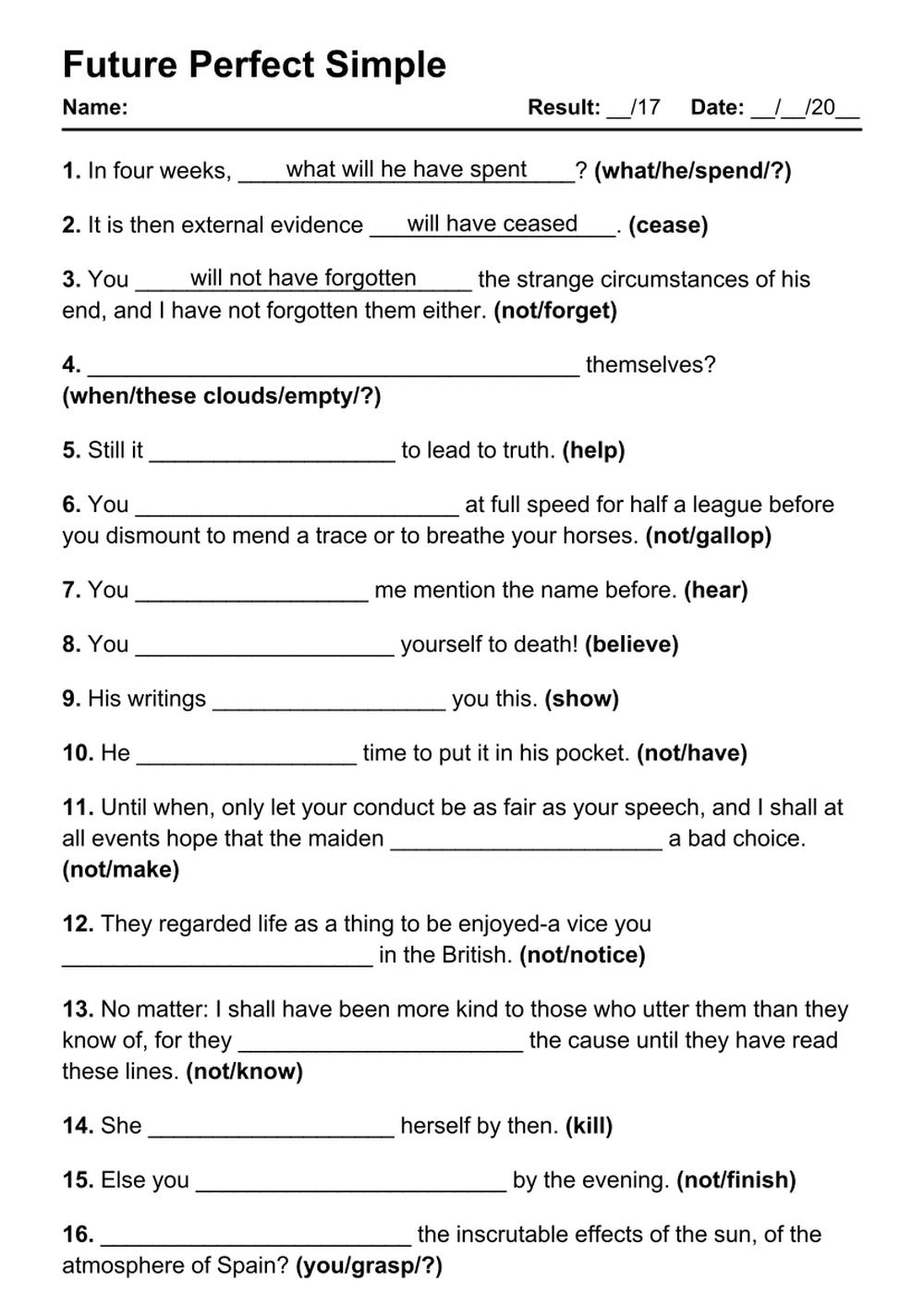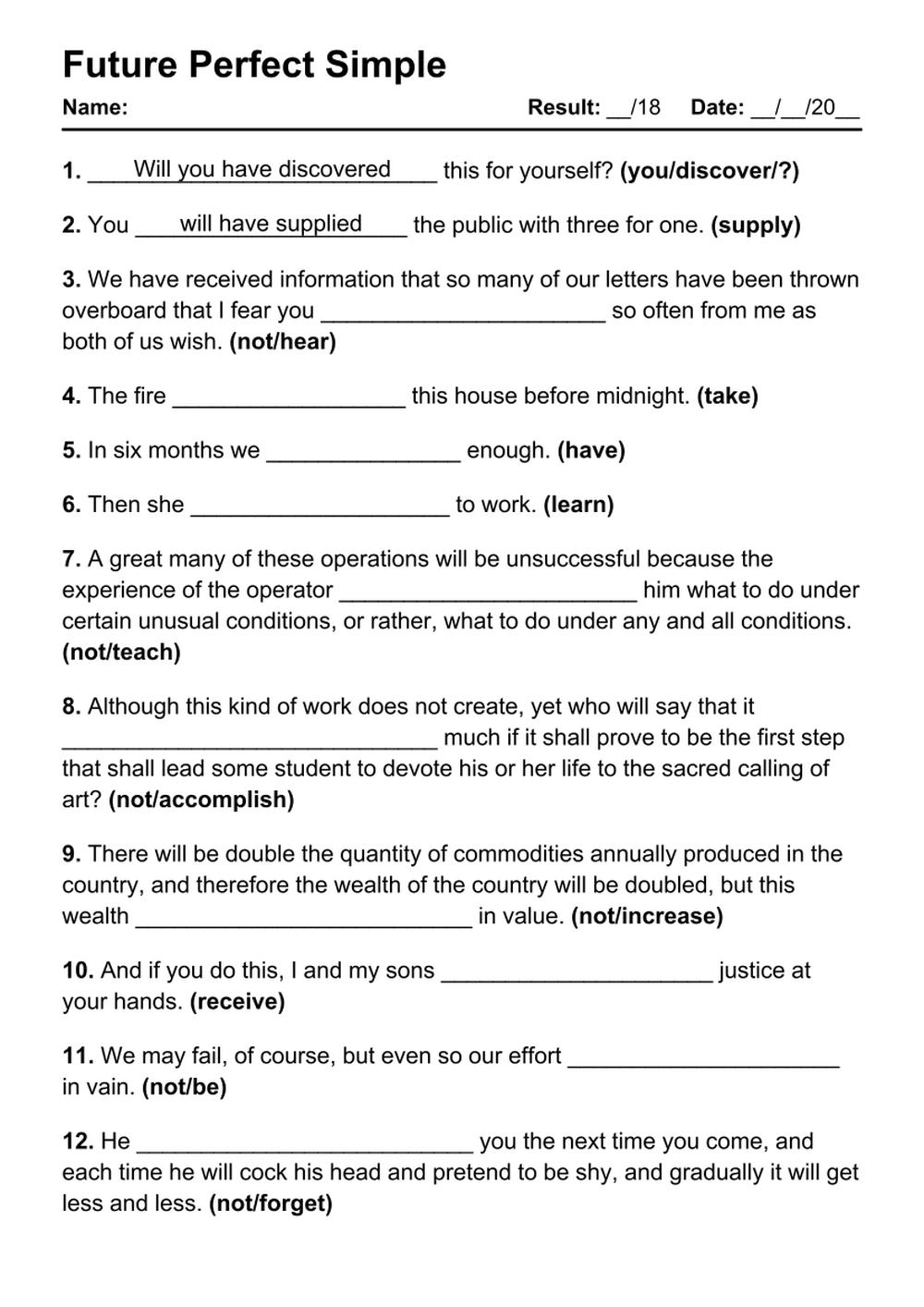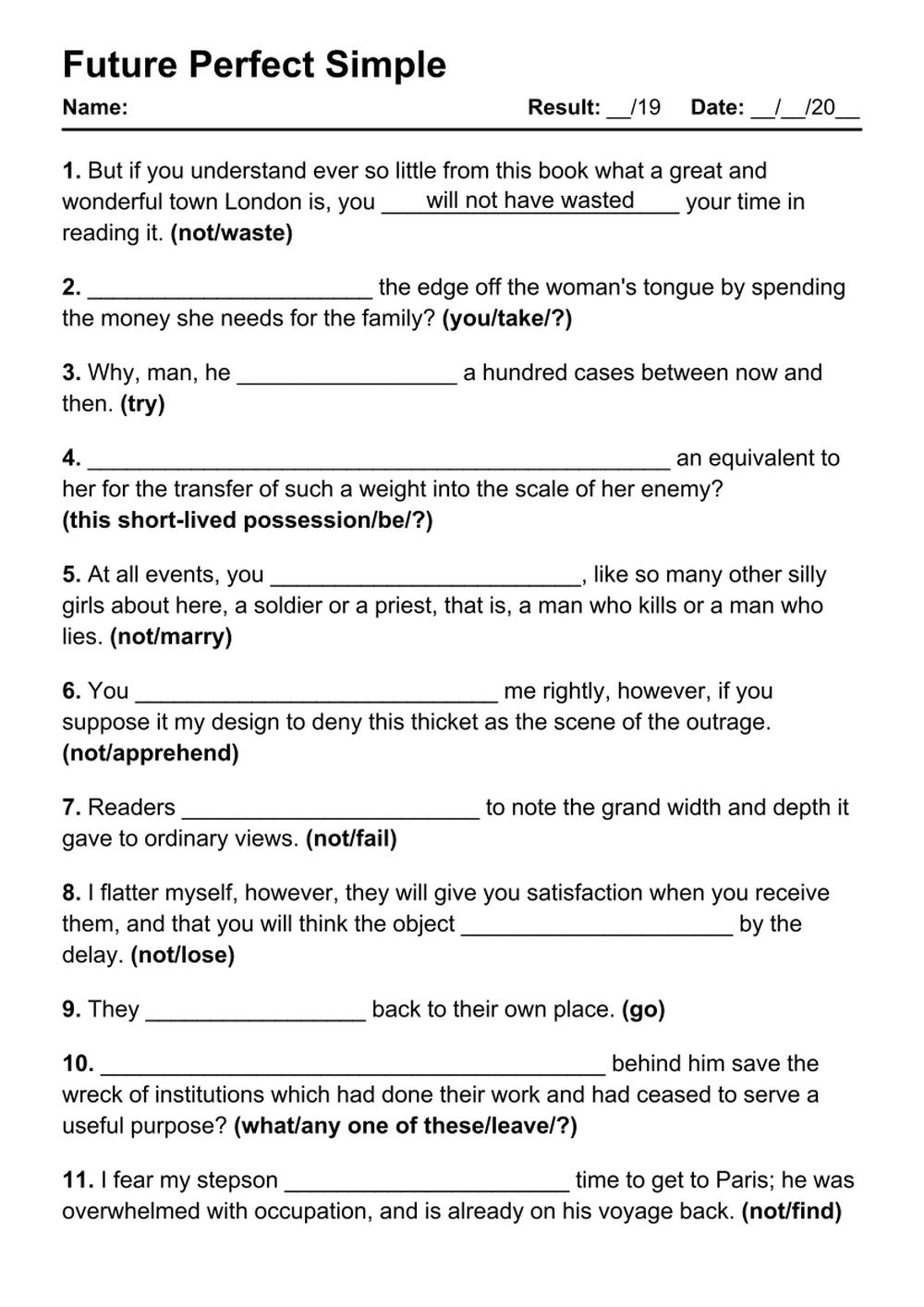Printable Future Perfect Exercises - 14 PDF Worksheets with Answers














Future Perfect Simple Tense Printable PDF Worksheet Tests with Exercises and Answers
Access a collection of 14 printable PDF worksheets focusing on the English grammar topic of the future perfect. Download fill-in-the-blank tests with exercises and answer keys for future perfect simple tense to print for free. The activities in the sheets are suitable for kids, adults, ESL learners at the beginner, elementary, and intermediate levels to practice English grammar.

 Bundle
Bundle Worksheet
Worksheet
 Save
Save